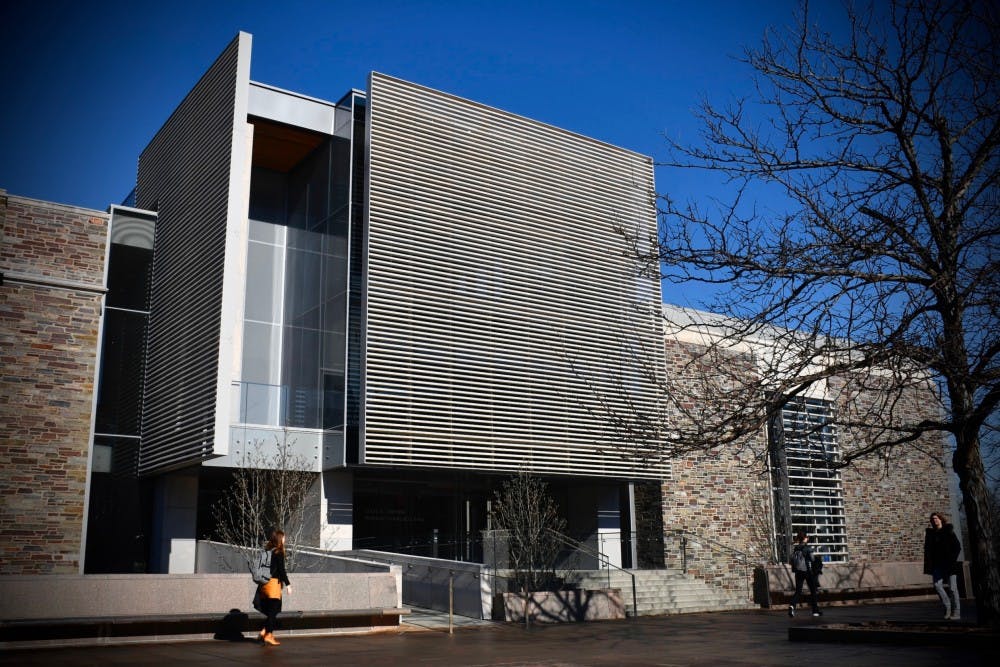As of June 11, 2019, nine international Princeton students have received their work permits for the summer. That’s less than 10 percent of the total number who have applied. For many of us, the processing delays have resulted in the loss of jobs, and with them, the incomes we planned on using to pay for food and rent.
On May 30, 30 international students sent a letter to President Eisgruber and the Davis International Center. The letter explained the situation and petitioned for assistance from Princeton, including financial support. Official responses, the first of which was sent six days later, have two patterns: assurances that Princeton empathizes, and offers of assistance that fail to address our urgent financial needs.
International students across the United States need work permits for any off-campus employment. If our job isn’t provided by the University, we’re required to provide an “employment authorization document,” or EAD. There are two ways to get this permit. The first one, “Curricular Practical Training” (CPT), is simple. As long as a summer internship gives us academic credit, we can apply for CPT. It’s free, unlimited, and processed by the school with no additional cost to the staff. Despite the permit’s convenience, Princeton does not offer CPT.
The alternative work permit is the “Optional Practical Training,” or OPT. To get OPT, we have to pay $410 out of pocket, use up some of our work authorization after graduation, and apply through U.S. Citizenship and Immigration Services. We can only submit the application 90 days before we start working, and its processing times have skyrocketed from about 70 days in 2016 to more than 90 in 2018. This year’s delays are unprecedented, with some of us waiting for more than 100 days (and counting) without hearing back from USCIS. Even those of us who applied on the earliest possible date have seen our start dates come and go, with no updates to our status.
For years, Princeton has been an outlier among its peer institutions for not offering any CPT, the superior work authorization, for its undergraduate students. Harvard offers it. MIT has it. Yale recently introduced it. Most colleges find a way to comply with the regulation without giving CPT students a real academic edge, by offering, for example, 0.1 credits for the CPT internship. Despite this, our administration’s argument against CPT is simple: the University does not require an internship, and it cannot offer academic credit for one. Of course, even if we disregard the prevailing culture of internships for undergraduates, Princeton still offers CPT for some graduate programs, including the Master’s in Finance, the Woodrow Wilson School’s Master’s in Public Affairs, and a significant number of engineering PhDs.
After two letters and significant pushback from international students, Dean Dolan promised that she has “followed with great concern the difficult situation created by [the] delays.” In her email, she reassured us that the University’s Office of Government Affairs is hard at work, and that the Office of the Dean of the College, which has so far resisted efforts to introduce CPT, will “convene a small working group this summer to explore the range of ways that this kind of practical learning could potentially be connected to the curriculum for all undergraduate students.” These are steps in the right direction, and we sincerely wish that we’ll see CPT introduced in time for the summer of 2020. We thank Dean Dolan for her genuine efforts.
At the same time, almost 80 students are currently at risk of losing their jobs, incomes, and housing. For the fortunate few who can find a last-minute research assistant role for the summer, Dean Dolan promised she would “work with Housing” to provide a place to stay on campus. Yet, for students who have put down security deposits and down payments, who’ve covered the first month of rent expecting to earn enough to cover the second, Dean Dolan provides no recourse.
In a previous email on June 6, a high-ranking official at the Davis International Center continued the stream of good wishes by the administration. But, tellingly, she informed us that “there is no mechanism or precedent for providing students with financial compensation for lost internships and related financial obligations. All forms of financial aid, including loans, are unavailable during the summer months for activities that are not connected to credit-bearing coursework.” In other words, the Financial Aid Office probably won’t be able to help us, but even if it did, we would have to wait until the end of the summer.
This leaves most of us with a fair amount of positive wishes — from our domestic peers, our employers, and the administration — but with surprisingly few resources to turn to. I suggest the following. First, the Financial Aid Office needs to waive any expected summer savings in the aid packages for impacted students. Financial aid, for many of us, comes with the expectation that we save over the summer — something we can’t do without a job. Second, Housing should provide reduced rates for summer accommodation for international students who are fortunate enough to receive research roles on campus. Third and most importantly, the administration should act to ameliorate (or fully cover) the unexpected financial hardships posed by the loss of security deposits, last-minute housing changes, or desperate flights home for students receiving significant amounts of financial aid.
The University could not have foreseen the processing delays with OPT. However, if it provided CPT, this situation would have almost entirely been averted. International students should not have to bear a major financial burden because of the University’s mistake, and the administration should act to rectify it.
Bobo Stankovikj is a senior Wilson School major from Skopje, Macedonia. He can be reached at bobo@princeton.edu. An Lanh Le is a senior History major from Ho Chi Minh, Vietnam. She can be reached at anlanh.le@princeton.edu.










